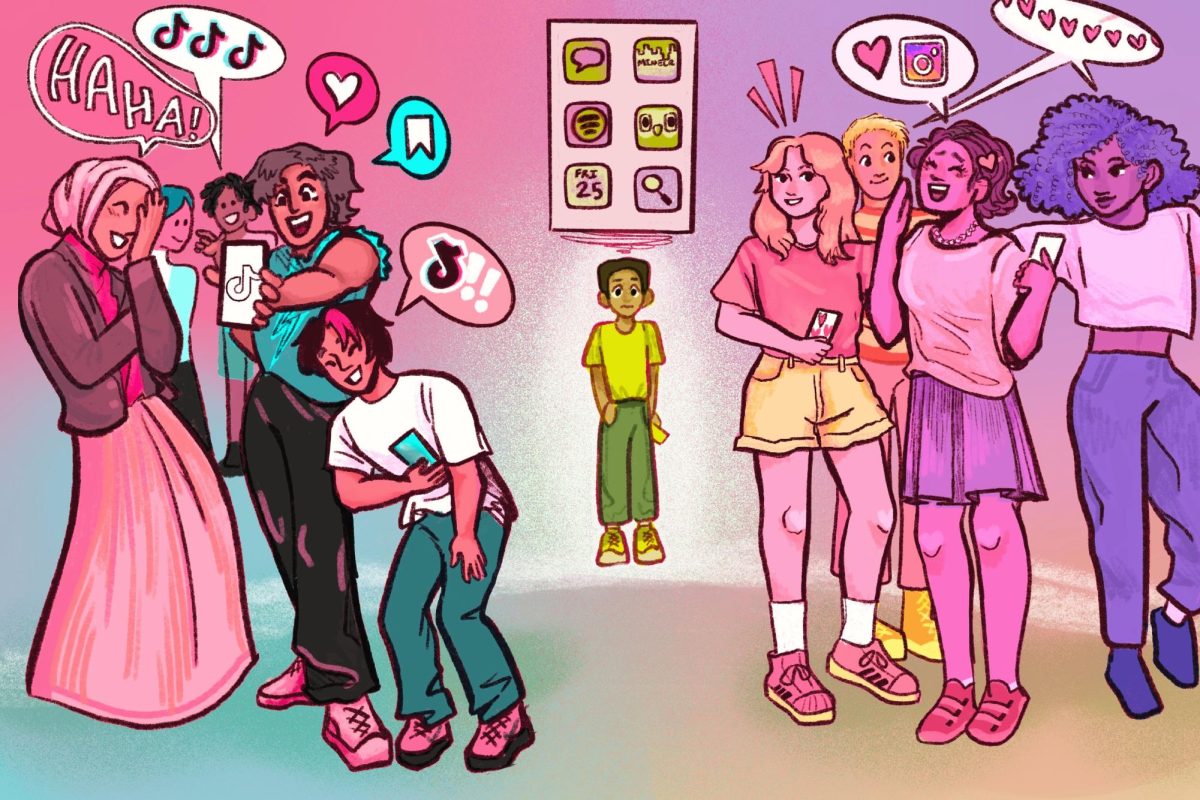Growing up in the mid-2000s, there was a clear change in my life based on the arrival of one item: a clunky desktop computer.
While I don’t remember the first time I logged onto social media — maybe with a wired mouse beneath my tiny palm and the sounds of keys click-clacking as I struggled to type www.youtube.com into the search bar — I do remember when I realized I couldn’t function without it.
In the midst of self-isolation and my junior year of high school online, my eyeballs were glued to screens nearly every hour I was awake. Whether I was trying to keep up with classmates on Instagram or watching TikTokers make whipped coffee, I thought it was just a way to pass the time.
But instead, I found myself scrolling for hours on end, subconsciously comparing myself to others. I’d log off feeling apathetic about the world and overly anxious about my future. Being online didn’t genuinely connect me to anyone; it made me feel more alone and disconnected than when I was actually by myself. At a certain point, I came to a realization that I couldn’t avoid: social media just makes me feel bad.
More than three years have passed since I made the conscious decision to delete all social media from my phone. Looking back, I can’t believe I functioned with constant information overload and a feed full of unrealistic posts, but in the same way I learned to live with social media, I learned to live without it. Now, I use social media once a week on my computer instead.
Not using social media does not make me better or worse than anyone else, but it has made my college experience different. On a campus with constant events and thousands of potential social connections, I’ll admit there are times I wish I had an easier way to connect with my friends and the campus community. When my friends ask if I’ve seen a certain TikTok or if I’m going to an event that was posted online, I can feel out of the loop and not as involved as I should be.
Still, I have made friends and memories in person, and am connected with campus culture through my classes and organizations. Using social media doesn’t have to be the default for college students, but rather a conscious choice to be made without self-comparison and social pressure.
It may seem granola to some, and my friends still poke fun at me for scrolling through Instagram on my laptop, but now I consider myself and my needs before I pick up a device to look for a short-term distraction.
If at any point I feel using social media would improve my life, I’ll redownload it. But acknowledging that social media didn’t add to my life in any remarkable way made it clear what was truly adding to it. Regardless of whether UT students choose to delete social media apps, evaluating the relationship between one’s online presence and their happiness is always worth it, even if it means logging off for a little bit.
Henningsen is an advertising and English junior from Austin, Texas.














